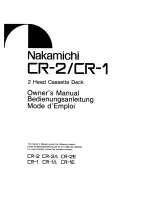
10
Connecting a television or flat screen
You have three options, depending on the sockets you have on your
television or flat screen:
– You get the best picture quality by making the connection at the
EURO-AV socket using a fully assigned EURO-AV cable.
– The standard connection for many devices, and one which provi-
des good quality, is via the S-VIDEO OUT socket and the AUDIO
OUT cinch sockets.
– The simplest option which stills offers sufficient quality is connec-
ting the VIDEO OUT video socket and AUDIO OUT sockets with a
cinch cable.
Necessary adjustments to the television
After you have made the connections at the selected output sockets,
you must activate them. The setting procedure is described in the
“Selecting the video output socket (EURO AV/RGB or S-Video)” sec-
tion on page 15.
If the DVD player is connected to a television set or a flat screen with
a 16:9 format, observe the settings described in the “Selecting the
screen format of your television set” section on page 15.
The colour standard of the DVD player must be matched to the
colour standard of your television or flat screen. The setting proce-
dure is described in the section “Setting the TV standard” on page
14.
Connect the »
EURO AV
➞
TV
« socket directly to the television or
flat screen, not indirectly via a video recorder. This can cause diffi-
culties when playing back copy-protected CDs.
Connection using a EURO-AV (Scart) cable
1
Plug the EURO-AV cable supplied into the »
EURO AV
➞
TV
«
socket of the DVD player and into the corresponding socket of
the television or flat screen.
CONNECTION AND PREPARATION
_
S VIDEO OUT
DIGITAL AUDIO OUT
VIDEO OUT
L
R AUDIO OUT
EURO AV TV
S VIDEO OUT
DIGITAL AUDIO OUT
VIDEO OUT
L
R AUDIO OUT
EURO AV TV
100-240 V
~
50/60 Hz 10 W
AV1
AV2











































